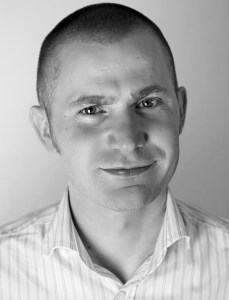- A
- A
- A
- ABC
- ABC
- ABC
- А
- А
- А
- А
- А
- HSE University
- Faculties
- Faculty of Humanities
- School of Linguistics
- Events
- Dr. Frank Fischer in School of Linguistics: "A Digital Take on World Literature - How we can enhance Literary Studies with the help of Computational Linguistics"
The School of Linguistics was founded in December 2014. Today, the School offers undergraduate and graduate programs in theoretical and computational linguistics. Linguistics as it is taught and researched at the School does not simply involve mastering foreign languages. Rather, it is the science of language and the methods of its modeling. Research groups in the School of Linguistics study typology, socio-linguistics and areal linguistics, corpus linguistics and lexicography, ancient languages and the history of languages. The School is also developing linguistic technologies and electronic resources: corpora, training simulators, dictionaries, thesauruses, and tools for digital storage and processing of written texts.
Digital Humanities
Bangkok: Association for Computational Linguistics, 2024.
Bursov K., Slioussar N.
Discourse Processes. 2025. Vol. 62. P. 155-176.
Daria I., Konstantin Zaitsev, Olga S.
In bk.: CLEF 2025 Working Notes. Vol. 4038. CEUR Workshop Proceedings, 2025.
arxiv.org. Computer Science. Cornell University, 2024

Dr. Frank Fischer in School of Linguistics: "A Digital Take on World Literature - How we can enhance Literary Studies with the help of Computational Linguistics"
 Dr. Frank Fischer (Göttingen Centre for Digital Humanities): "A Digital Take on World Literature - How we can enhance Literary Studies with the help of Computational Linguistics"
Dr. Frank Fischer (Göttingen Centre for Digital Humanities): "A Digital Take on World Literature - How we can enhance Literary Studies with the help of Computational Linguistics"
If it comes to the vast and diverse corpus of world literature, the lone scholar is soon confronted with the limits of traditional research. It is no secret anymore that by help of advanced digital methods we can process a much larger amount of literary texts than usual (an amount that is rather measured in gigabytes than in pages). In doing so, we can analyse aspects of literary history that couldn't be investigated before. In this 45- minute lecture I will introduce three innovative takes on world literature, all recently developed in cooperation with fellow colleagues. The first one revolves around the use of network analysis for large corpora of dramatic texts; it will show how we can find patterns of modernisation with the help of network theory. The second one focuses on the extraction of temporal expressions from large corpora of novels in order to build a "calendar of world literature". The third one will deal with the representation of world literature in the 15 major Wikipedia versions, based on its semanticised version, DBpedia. None of these projects are limited to a specific language or a specific national literature. As diverse as they may look at first glance, they all aim at reiterating our concepts of world literature in a digital fashion by help of a number of methods of computational linguistics and network theory.
Lecture starts on 9th April at 14.00
- About
- About
- Key Figures & Facts
- Sustainability at HSE University
- Faculties & Departments
- International Partnerships
- Faculty & Staff
- HSE Buildings
- HSE University for Persons with Disabilities
- Public Enquiries
- Studies
- Admissions
- Programme Catalogue
- Undergraduate
- Graduate
- Exchange Programmes
- Summer Schools
- Semester in Moscow
- Business Internship
- © HSE University 1993–2025 Contacts Copyright Privacy Policy Site Map
- Edit

